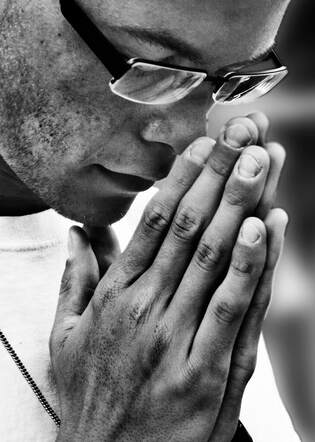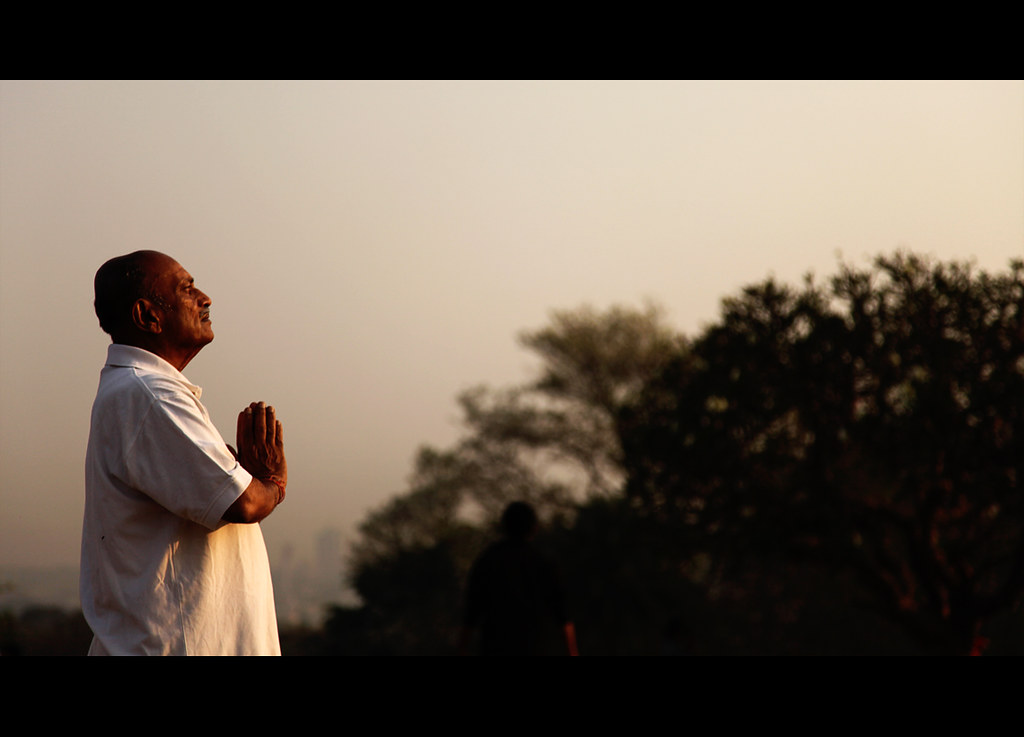|
By the Reverend Sally S. Weaver
Editor's note: Pastor Sally gave this sermon on October 11; we're just now getting it published. We're grateful for your patience!
Some years ago I attended a clergy conference in which the speakers were pastoral counselors and therapists from Care and Counseling. A key learning from that conference was "structure binds anxiety." By this, the experts mean that when people are anxious to the verge of panic, establishing routines and disciplines significantly lowers anxiety levels.
In today’s Old Testament reading, the Hebrew people are extremely anxious. They have left behind their old routines and structures. Sure, they were slaves in Egypt. But at least they knew what to expect; they knew what each day would bring and how they might cope. Since Moses led them out of Egypt, they’ve lived each day understandably anxious about survival in the desert: Would they wander in this wilderness forever? Where would they find sufficient food and water?
Yes, God had provided for them through the agency of their leader Moses. But now Moses is gone. What seems to the Hebrews like ages ago, Moses entered the cloud surrounding Mt. Sinai and disappeared. Moses’ return is long overdue. “As for this Moses, the man who brought us up out of the land of Egypt,” they say, “we do not know what has become of him.” The Hebrew people are anxious.
To address their anxiety Moses’ brother Aaron collects everyone’s gold to fashion the image of a calf. To us, that’s a bizarre way to respond to stress. But consider how grief-stricken and lost the Hebrews must have felt, imagining that Moses was dead and that they would never see him again. People plant roadside crosses to commemorate where loved ones have died in auto accidents. We built the 9/11 memorial to remember who had died in that terrible tragedy. So is it so strange that the Hebrew people would want some tangible object to focus on to relieve their fears? The golden calf gave the Hebrews a way to release the pressure they were under with the perceived loss of their leader. The golden calf provided structure, binding the people’s anxiety.
God was not pleased, of course, with the way the Hebrews chose to respond to their uneasiness. Following this incident God, through Moses, instructed the Hebrews to observe feasts and festivals in a particular way. Perhaps God did that because, in witnessing their worship of the golden calf, God realized that structure and discipline are necessary coping mechanisms.
Today there is much to be fearful of. Covid-19 continues to spread throughout our country and the world. Two days ago the CDC website told me that there have been almost 10,000 new cases in Missouri in the last 7 days. We are anxious about getting the coronavirus. We worry about the effect it is having on our children and their mental health. We are concerned for our own livelihoods and those of many we know. We feel isolated, cut off from one another for legitimate fear of Covid transmission. And then there’s the state of our country. Many of us find hope in the number of people protesting racial injustice and calling for systemic change. But we know that marching doesn’t create better systems and institutions. Will white supremacy continue unchecked or will we see a measurable, positive shift toward racial justice? Many of us are afraid of the outcome on Nov 3, fearful of violence if President Trump is defeated, fearful of what four more years will mean if he is not. What are we to do about it? I agree with the Care and Counseling experts that say structure binds anxiety. But I would rephrase it: Spiritual disciplines bind anxiety.
Deepening our relationship with God is the most effective response I know to stress, anxiety, grief, loss, and trauma. Prayer, stewardship, worship, Scriptural study, service to those in need – these change our focus from what’s wrong with the world to the saving acts and grace of God. Spiritual disciplines shift our orientation from helpless to hopeful, from despair to joy, from worry to thanksgiving. Spiritual disciplines aren’t going to find a vaccine for Covid or eliminate white nationalists. But worship and service enable us to live differently in the world, by carrying the shining light of Christ into the dark places.
The beauty of spiritual disciplines is that the more faithfully we engage in them, the more they benefit us. The more generous we are with our money the keener our sense of how rich we are. The more we pray the more we see God’s hand in our lives and the world. The more we give thanks to God for all that we have been given, the more we find to be thankful for. The more we participate in worshipping as a community, the more we are bound together in love and service. Not only do spiritual disciplines alleviate anxiety, they re-orient our hearts and minds. We become more attuned to God’s blessings.  "Prayer #2" by Connor Tarter is licensed under CC BY-SA 2.0 "Prayer #2" by Connor Tarter is licensed under CC BY-SA 2.0
We – you and I -- know of a man who dearly loved his church community. While he was in prison he wrote them a letter in which he told them of his longing to be with them. The prison that this man was being held in is beyond description, the conditions appalling – dank, dark, dirty. If it weren’t for his friends bringing him food, that prisoner wouldn’t have had enough to eat. What is his mood? How is he feeling? Hear what he says to his beloved church in the city of Philippi: “Rejoice in the Lord always; again I will say, Rejoice…Do not worry about anything…And the peace of God, which surpasses all understanding, will guard your hearts and your minds in Christ Jesus.”
During the 15 to 20 years that the apostle Paul travels, proclaiming the good news of Jesus Christ, he is beaten, stoned, shipwrecked, imprisoned twice, and finally, executed. Paul knows hardship. He lives in a violent, Roman-occupied world where the people in the churches he founds lead lives that are indeed “nasty, brutish, and short.” And yet he tells them to rejoice, to not worry, to know that God’s wish for them is well-being that is so profound it exceeds our capacity to comprehend it.
In response to the anxiety and fear and desperation that surrounds Paul, he urges his fellow believers to turn to the spiritual discipline of prayer: “In everything,” he tells the church in Philippi, “by prayer and supplication with thanksgiving let your requests be made known to God.” As he is held captive in a miserable prison, Paul exhorts his beloved community to joy. Joy is not happiness, it does not assume that life is pleasant or comfortable. As Paul says in another letter, to the church in Galatia, joy is a fruit of the Spirit.
When we seek the Spirit of Christ through prayer and worship and service, we come to realize how deeply we are loved. Christ loves us without measure, without conditions, without ceasing. Because that is unchangeably true, Paul, the Philippians, and you and I are able to rejoice in the Lord always.
Spiritual disciplines do not deny the pain and injustice in the world. But they meet it as Jesus did, with compassion and love. In the words St. Francis:
May God bless you with discomfort at easy answers, half-truths, and superficial relationships, so that you may live deep within your heart. May God bless you with anger at injustice, oppression, and exploitation of people, so that you may work for justice, freedom and peace. May God bless you with tears to shed for those who suffer from pain, rejection, starvation, and war, so that you may reach out your hand to comfort them and to turn their pain into joy. And may God bless you with enough foolishness to believe that you can make a difference in this world, so that you can do what others claim cannot be done.
Amen.
The Reverend Sally S. Weaver is co-priest in charge at St. John's.
0 Comments
Leave a Reply. |
Editorial contactVarious members of the St. John's congregation contribute to this blog. For editorial suggestions, contact Jeff McIntire-Strasburg at [email protected] Archives
May 2024
CategoriesAll Bishop Deon Johnson Book Group Congregation Members Deacons Diocese Of Missouri Episcopal Church Features General Information Parish Events Podcast Presiding-bishop-michael-curry Sermons Terms-of-transition Vestry |

 RSS Feed
RSS Feed

